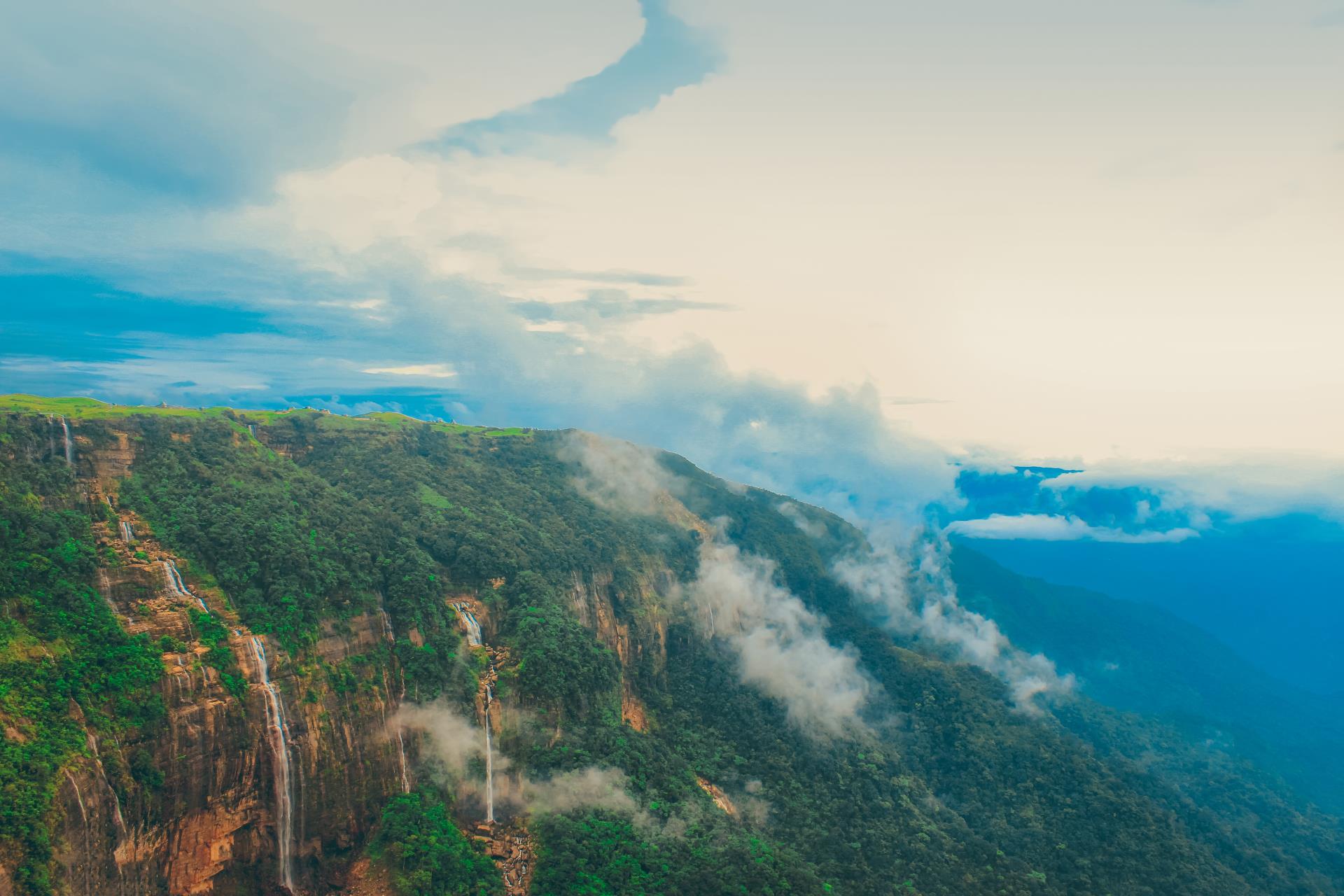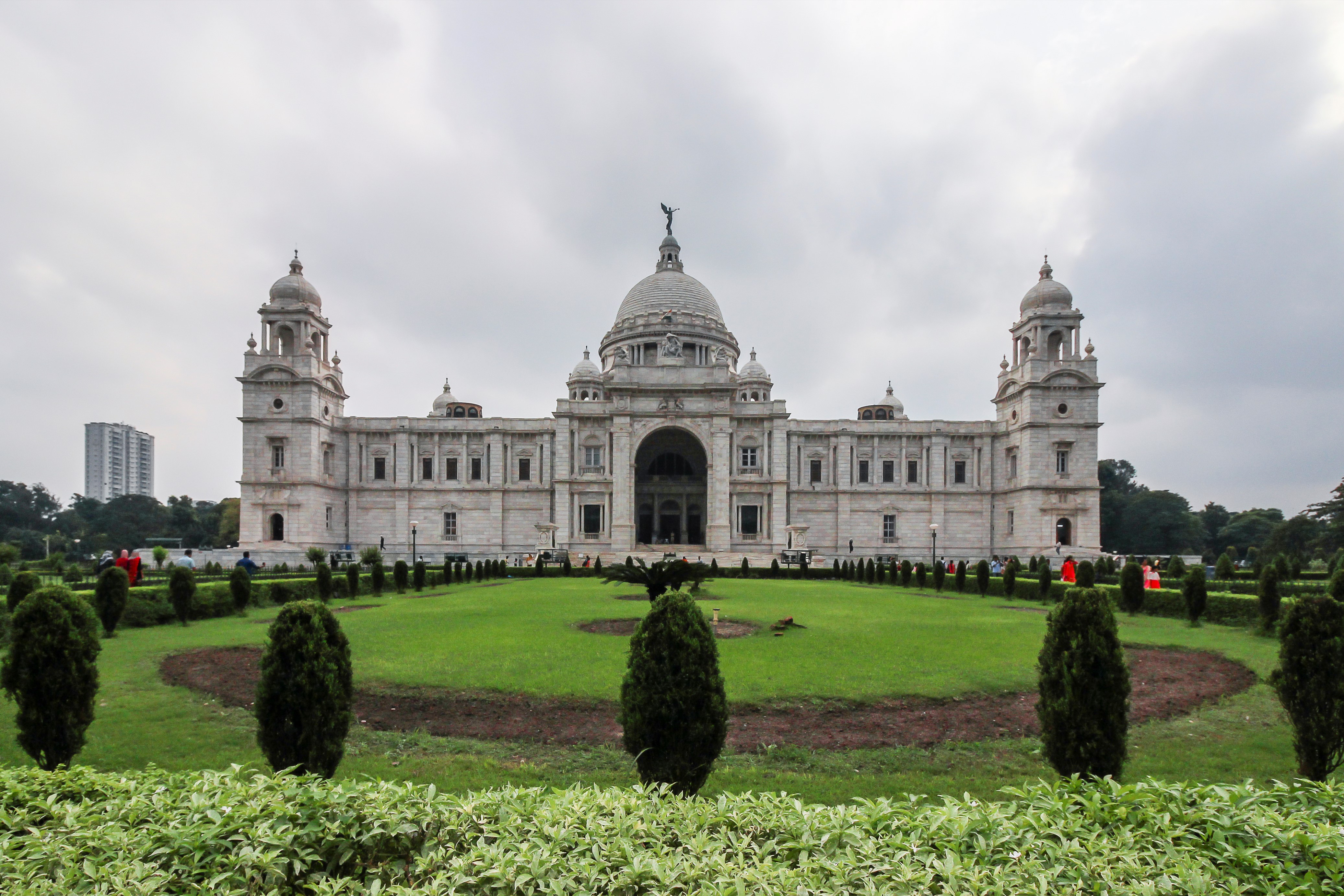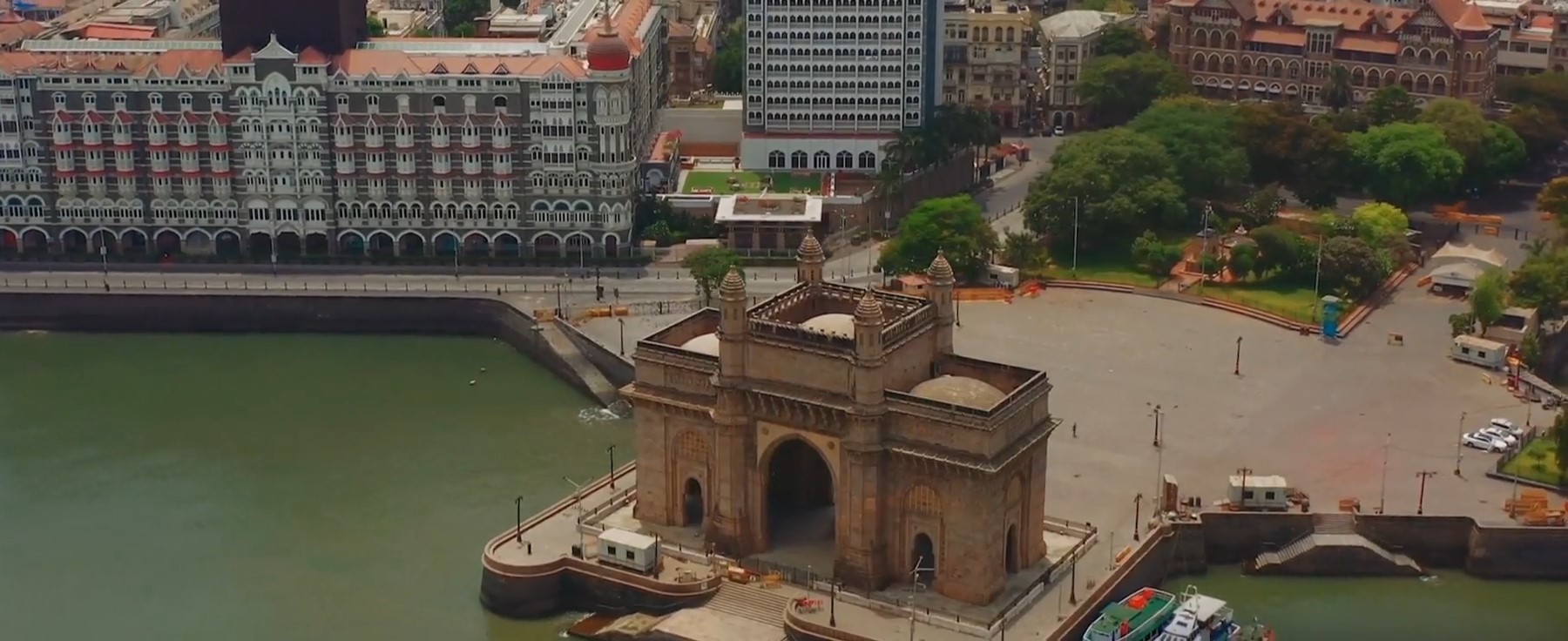
Sorry, we couldn't find anything that matches your search.
Destination

Famous Places to Explore in Hyderabad
A vibrant city with the imposing...

Raipur Tourist Places | Best Place to Visit
The stronghold of several erstwhile...

Ahmedabad
Declared as India's first UNESCO World...
#
 Start : Delhi
Start : Delhi
 End : Jaipur
End : Jaipur
 Time : 5 days
Time : 5 days
Day 1 : Arrive in Delhi

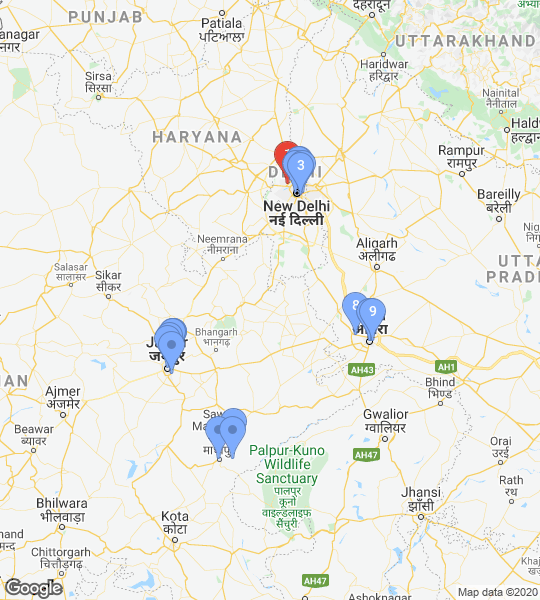
The captivating capital, Delhi, is a delight to explore, with historical treasures and cosmopolitan hubs rubbing shoulders with each other. If you arrived in the later hours of the day, grab a delicious meal at any of the eateries in the popular Connaught Place. Don't forget to enjoy a night drive to India Gate, where you can get stunning photos. The iconic archway of India looks spectacular bathed in soft golden light against the inky blue of the night sky.
Day 2 Stop 1: Morning: Rashtrapati Bhawan; Humayun's Tomb

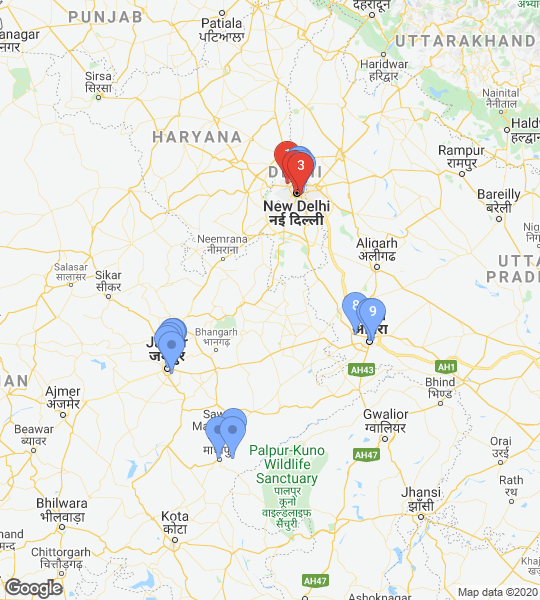
Visit the official residence of the President of India, Rashtrapati Bhawan, the most prominent landmark of Delhi. It boasts 340 rooms, including guest rooms, reception halls, offices, stables and residences for staff and bodyguards. The Rashtrapati Bhawan Museum Complex (RBMC) also makes for an interesting visit. A major highlight is an old Presidential buggy that can be seen drawn by life-size horses. You can also admire a Mercedes car gifted to the former Prime Minister Rajiv Gandhi by the king of Jordan. A Gift’s Counter on the premises shows the presents received by the President from different parts of the world. You can rope in a quick visit to Humayun's Tomb, about 10 minutes away.
Good to know:
The Bada Talaab or Upper Lake or Bhojtal is one of the oldest man-made lakes in the country, built in the 11th century.
What to do:
A viewing gallery has been set up by the Archaeological Survey of India (ASI) that displays old pictures of the monument that reflect its grandeur.
Day 2 Stop 2: Afternoon: Red Fort; Chandni Chowk
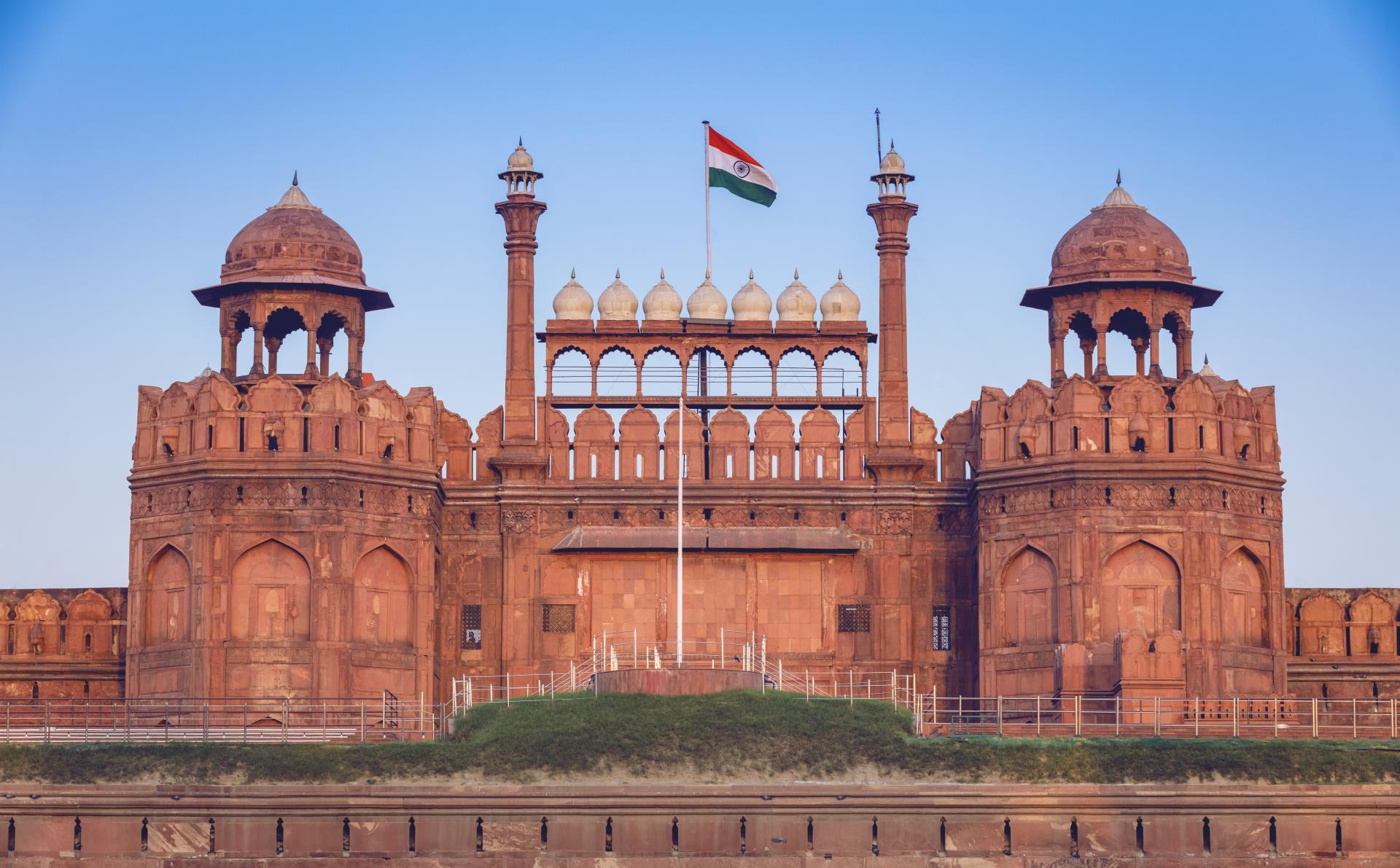
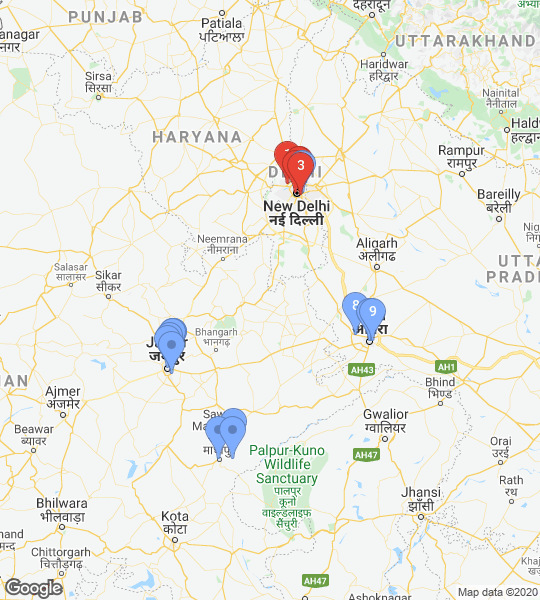
A short distance away lies the iconic Red Fort, a UNESCO World Heritage Site. It is replete with palaces, pavilions and mosques. The major attractions are the Diwan-i-Khas, also known as the Shah Mahal, the Diwan-i-aam or the Hall of Public Audience and the Rang Mahal (a part of the harem), also known as Imtiyaz Mahal. Afterwards, you can drop by at Chandni Chowk for an authentic Old-Delhi meal of hot and stuffed paranthas (flatbreads), Dahi-Bhalla (fried snack served with yoghurt), etc.
Good to know:
The Indian Prime Minister hoists the National Flag from the ramparts of the India Gate every year on Independence Day.
What to do:
The Red Fort Archaeological Museum offers an informative insight into the history of the nation.
Day 2 Stop 3: Evening : Akshardham
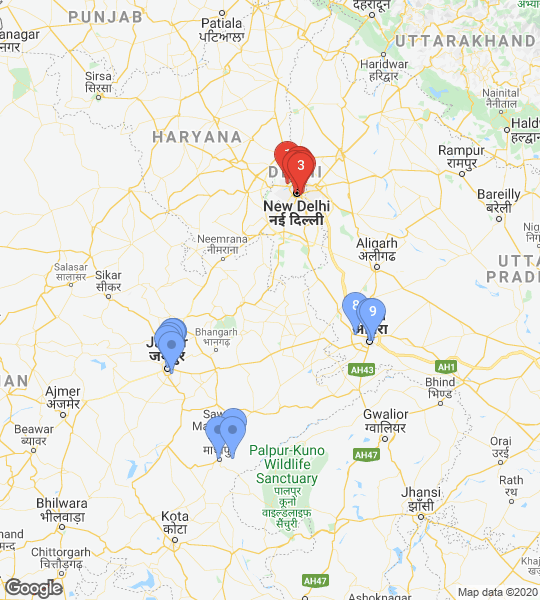
Visit Akshardham, the largest comprehensive Hindu temple, as per the Guinness World Records. It is constructed in pink sandstone and marble and is laid amidst neatly manicured lawns, pristine waterfronts and open courtyards. As you stroll along the breathtaking complex, you will spot intricate carvings of animals, flowers, dancers, musicians and deities that adorn the walls. Some interesting features of the temple are a musical fountain, the Sahaj Anand Water Show at Yagnapurush Kund.
Good to know:
It is said that the stone used in the construction of the temple was brought from Rajasthan and weighed about 6,000 tonne.
What to do:
Catch the breathtaking Light and Sound Show at 7:30 pm. The show narrates stories from ancient Hindu scriptures. It is a spectacular rendition that uses colourful lasers, underwater flames, water jets and video projections.
Day 3 : Arrive in Agra
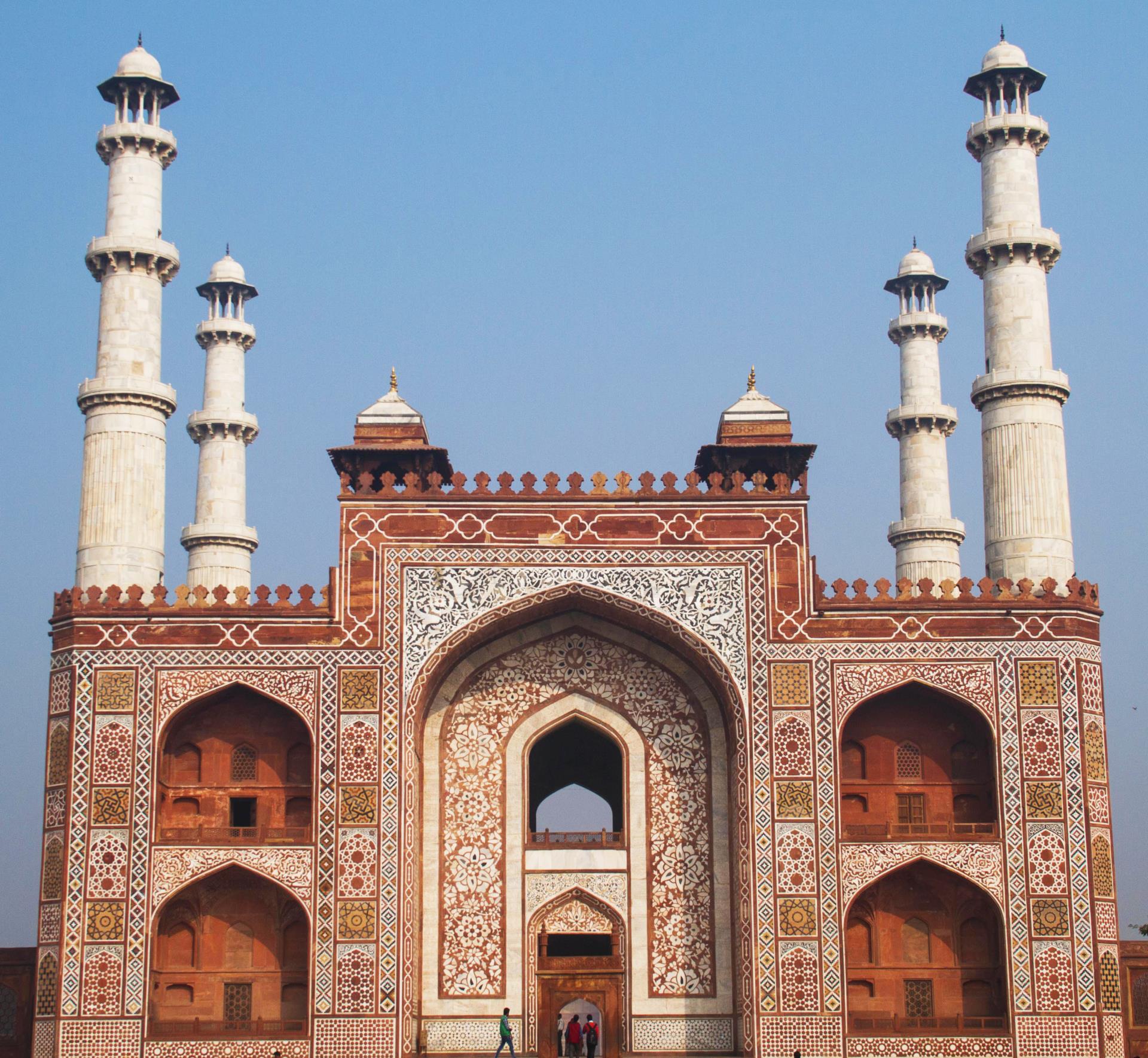

The city of the Taj Mahal, one of the seven wonders of the world, Agra in Uttar Pradesh is India's most popular tourist destination. Steeped in history, this ancient city is dotted with monuments, architectural wonders and beautifully landscaped gardens, which are remnants of the Mughal reign's majestic legacy. The city also enjoys a vibrant culinary scene while preserving its exquisite arts and crafts.
Day 3 Stop 1: Morning: Soor Sarovar Bird Sanctuary
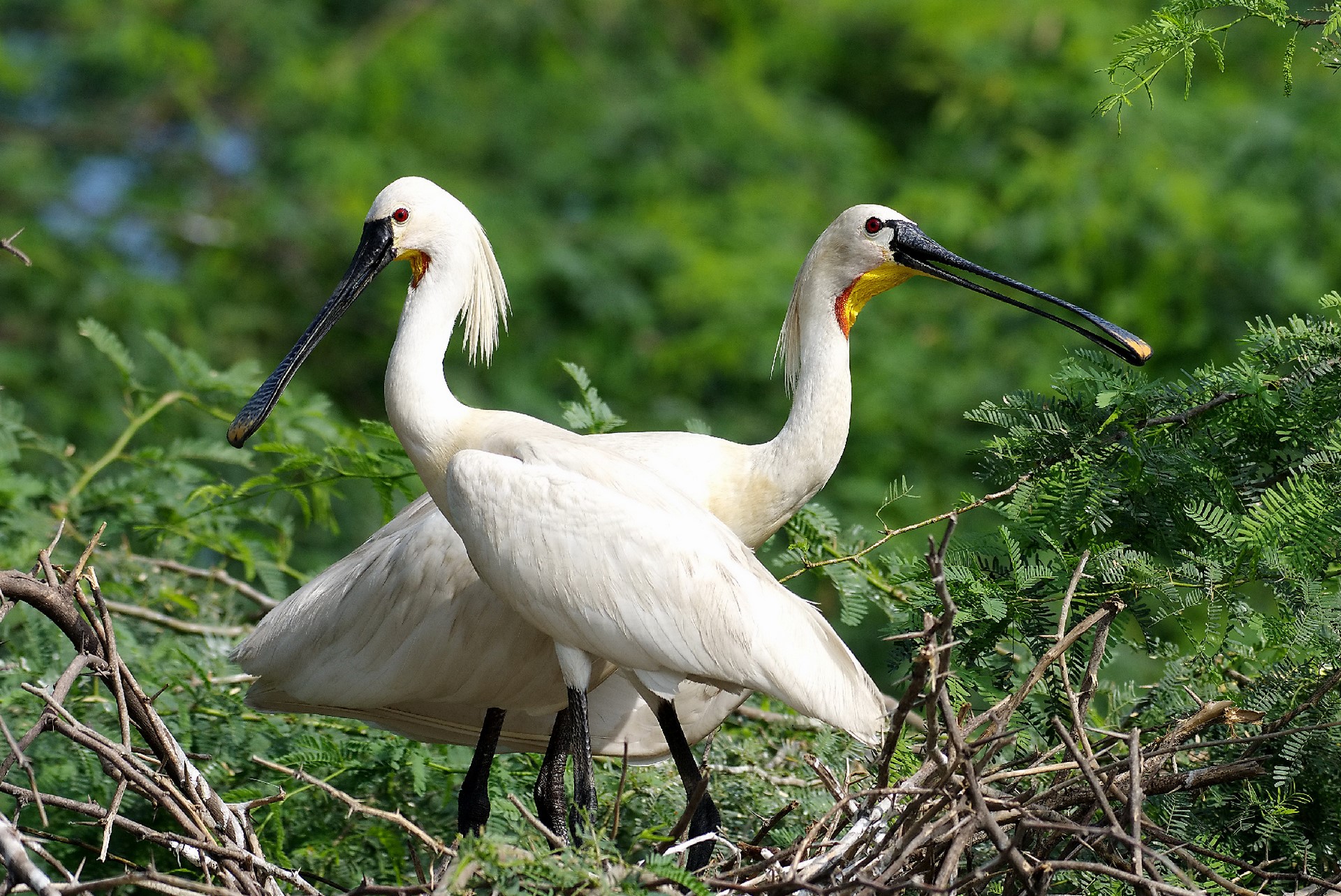
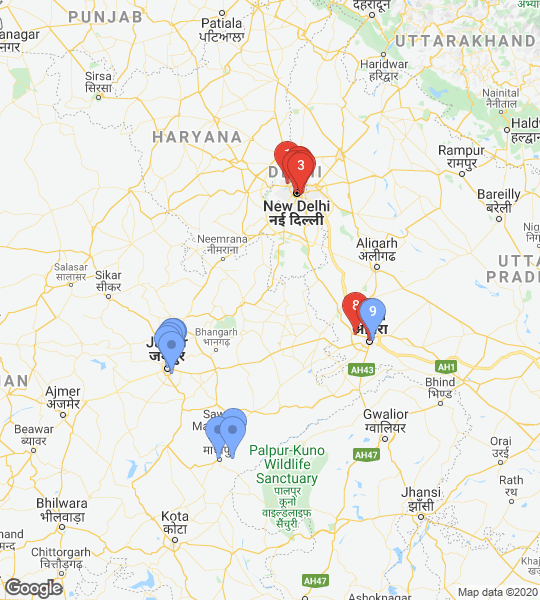
Situated on the Delhi-Agra highway, Keetham Lake is about 20 km by road from Agra. A serene body of water surrounded by lush green and enveloped in peaceful silence punctuated only by the calls of birds, this is an ideal picnic spot. Some birds that can be spotted here include egrets, purple herons, comb ducks and spoonbills.
Good to know:
The area provides shelter to nearly two dozen species of migratory as well as resident birds.
What to do:
The lake provides stunning photo opportunities.
Day 3 Stop 2: Afternoon: Taj Mahal
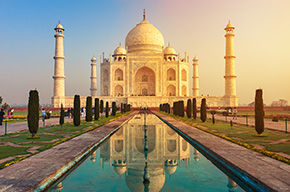
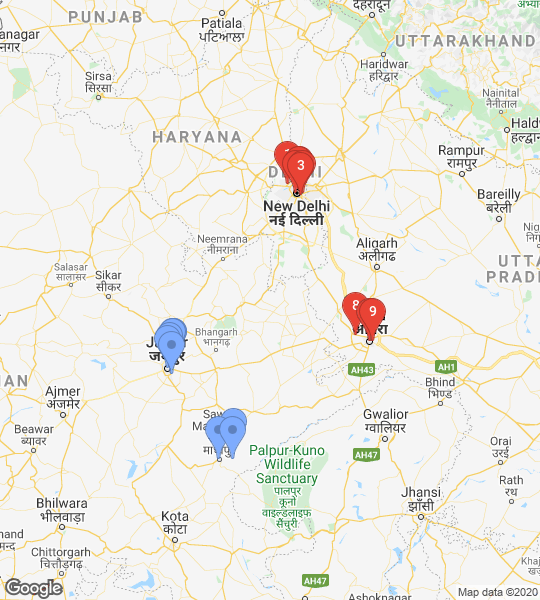
The famous Taj Mahal was built as a memorial by Mughal emperor Shah Jahan for his deceased wife, Mumtaz Mahal. Thus, it is often called the symbol of love. While words fail to express the beauty and grandeur of the monument, one can’t help but admire the brilliance of its architecture. It is riddled with optical illusions and masterful architectural safeguards. As one first beholds the monument from the main gate, for instance, the Taj Mahal looks large and imposing, but as you move closer, it appears to shrink in size. Also, the minarets surrounding the edifice, while perfectly upright to the naked eye, have actually been constructed to lean away from it so that, should a disaster like an earthquake come about, they would fall away from and not on the mausoleum.
Good to know:
It is widely believed that emperor Shah Jahan invited artisans from Italy and Persia to work on this marble monument.
What to do:
There are intricate inscriptions on all four entrances, while marble carvings and pietra dura mosaics adorn the walls.
Day 3 Stop 3: Afternoon: Agra Fort
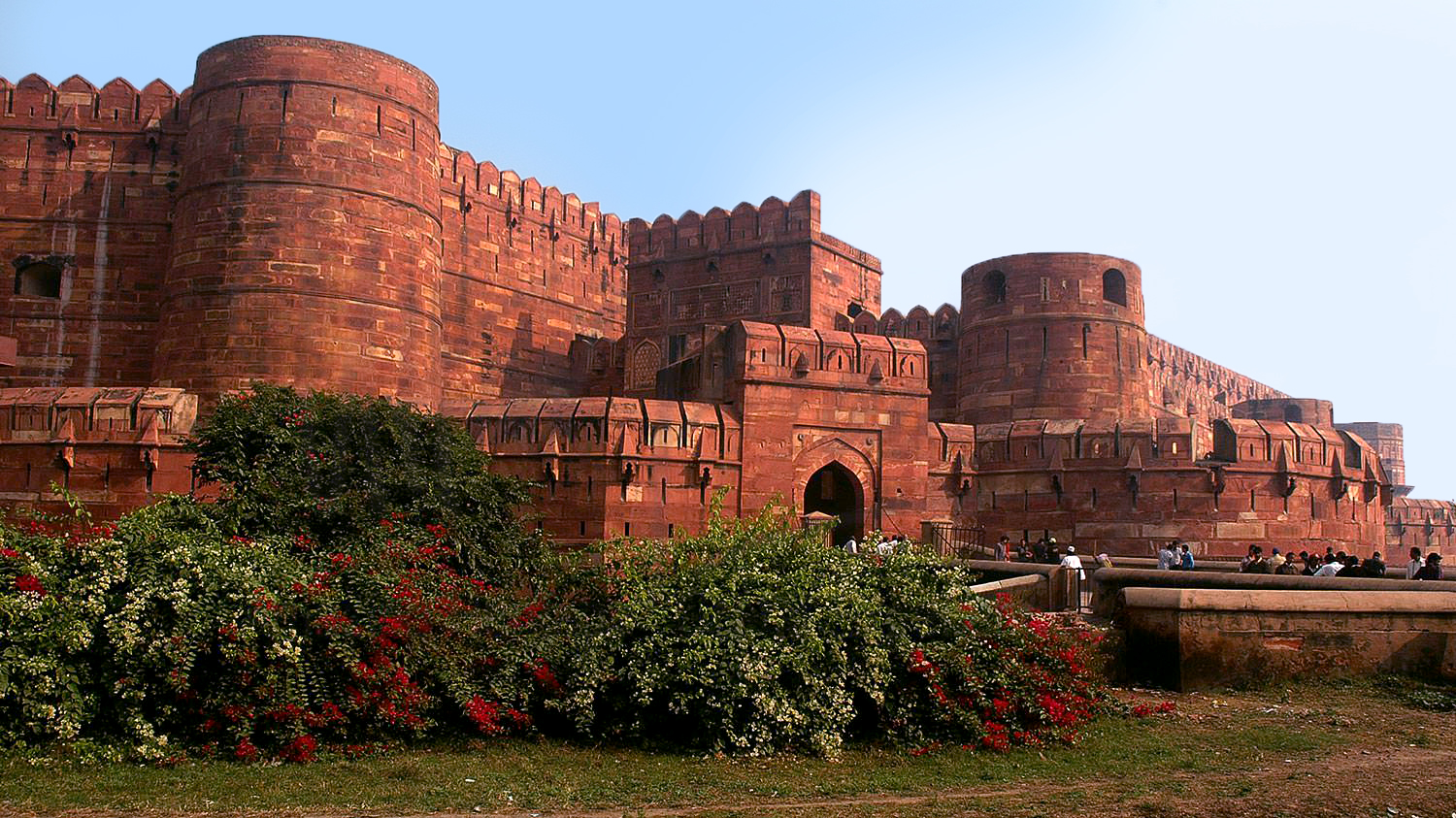
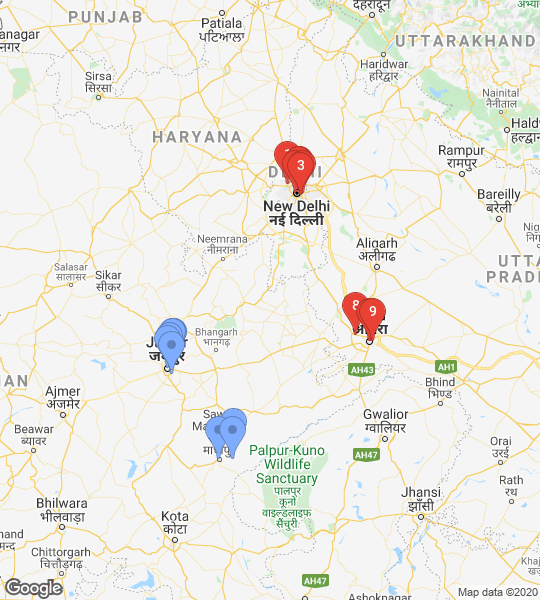
Agra Fort is a majestic sandstone built as an ode to the magnificence of the Mughal empire. Encompassing within its 2.5-km-long enclosure walls a stunning imperial city, the fortress is shaped like a crescent, its eastern wall flanked by River Yamuna. Some of its other internal structures include the stunning Moti Masjid, Diwan-i-Khas (hall of private audience) and Diwan-i-Aam (hall of public audience), once home to the legendary Peacock Throne that was eventually taken to Red Fort in Delhi when Shah Jahan shifted his capital there. There are two prominent mosques inside the fort - Nagina Masjid was built by Shah Jahan as a private mosque for the ladies of the court and Mina Masjid is believed to have been built by him solely for his own use.
Good to know:
It is said that the construction of the fort was originally begun by emperor Akbar, but completed by his grandson Shah Jahan, who added most of the marble monuments here.
What to do:
The Musamman Burj is an interesting structure - it is an octagonal tower with an open pavilion, and is believed to be where emperor Shah Jahan breathed his last, imprisoned and gazing at his beloved Taj Mahal. Don’t forget to catch the sound and light show at Agra Fort that provides a peek of the fortress' glorious history.
Day 4 : Arrive in Jaipur
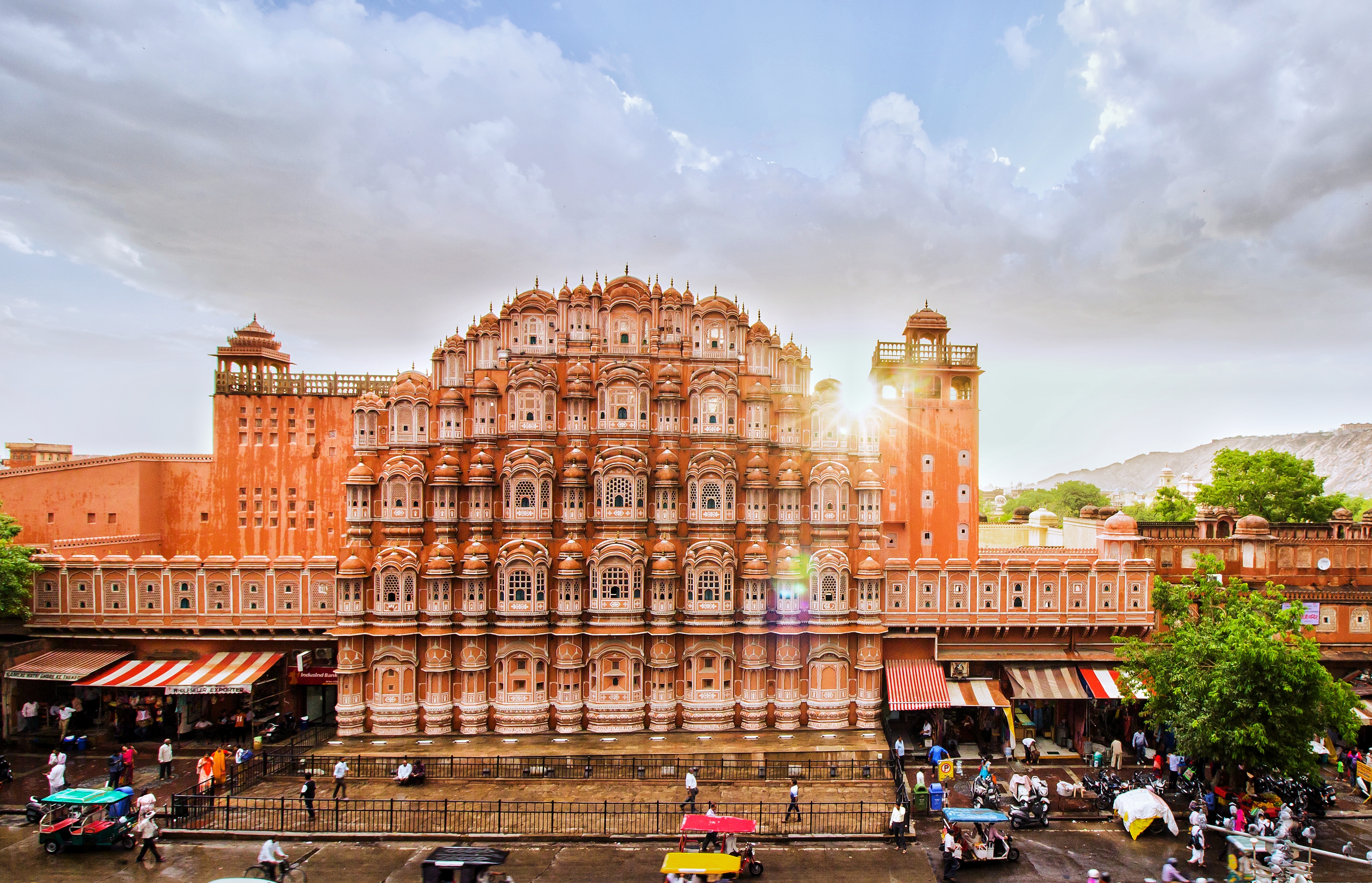
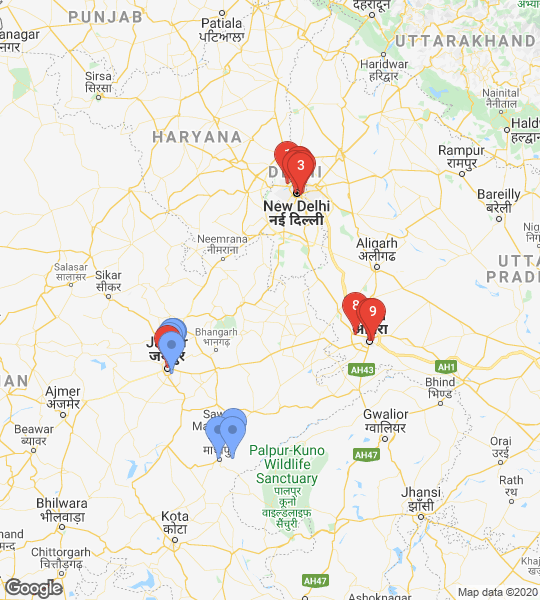
The city of palaces and forts, interspersed with historical monuments and gardens that testify the grandeur of the Rajput kings, Jaipur is the gateway to the royal heritage of India. Founded by Maharaja Jai Singh II in 1727 AD, Jaipur was the stronghold of the Rajputs, who gave it its everlasting legacy in the form of various heritage sites, arts and crafts, culinary curations etc.
Day 4 Stop 1: Morning: Jhalana Safari Park

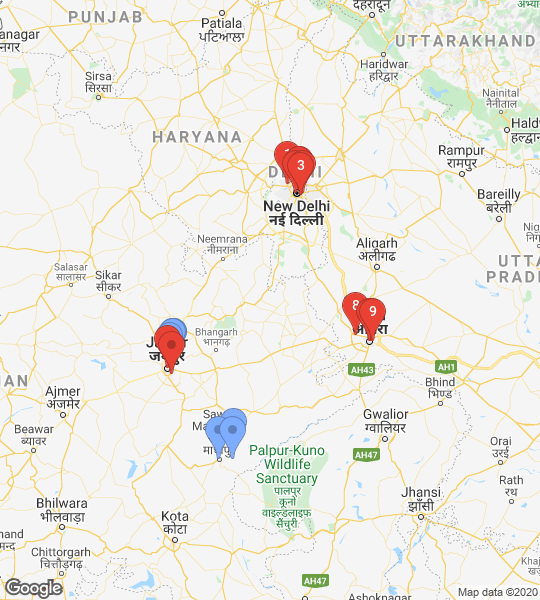
The expansive Jhalana Safari Park is sprawled over an area of 700 hectare and lies on the outskirts of Jaipur. It is home to about 15 leopards and is most popular for leopard safari. Besides leopards, the park also has panthers, hyenas, desert fox, golden jackal, chital, Indian palm civets, blue bulls, jungle cat, and many more. Moreover, the Jhalana Safari Park is a birdwatcher’s paradise as it shelters various species of avifauna.
What to see:
The park includes a majestic shikar oudi (a small house used during hunting expeditions) built in 1835 by Maharaja Sawai Ram Singh (1835-1880), a big temple of Kali Mata, and a Jain Chulgiri temple.
Travel Tip:
Don’t dispose of plastic waste in the park.
Day 4 Stop 2: Afternoon: Nahargarh Fort, Jaigarh Fort and Amber Fort

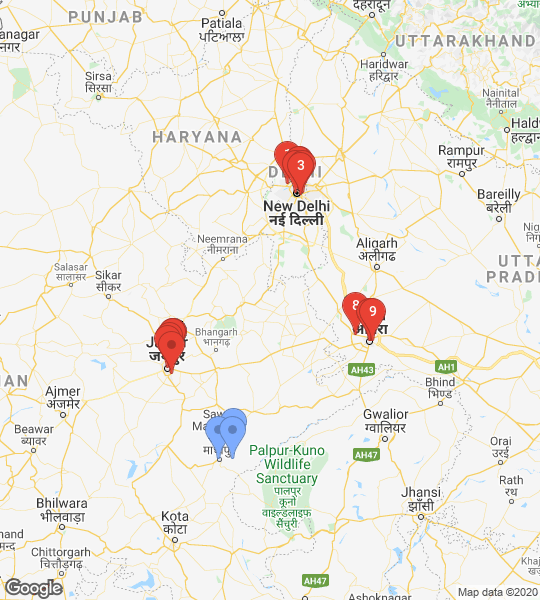
The three majestic forts of Jaipur lie close to each other. It is said that the mighty fortress of Jaigarh was built to protect the Amber Fort and houses the biggest cannon in the world. Touring the forts is a fascinating experience, with their gorgeous palatial rooms, exquisite artworks and archival weaponry giving a peek into the glorious Rajput past.
Good to know:
It is connected to the Amber Fort with subterranean passages and its architecture is also similar to it. The fort also boasts an assembly hall of warriors called Shubhat Niwas, a museum and an armoury. Many believe that the fort has a huge treasure buried under it.
What to do:
Sheesh Mahal or the mirrored palace is a breathtaking attraction with fine marble work and cut-glass and mirror inlaid designs on ceilings and walls. It is said that at night, as earthen lamps flickered inside the hall, the numerous mirrors reflected the light, creating the atmosphere of a star-lit sky.
Day 4 Stop 3: Evening: City Palace

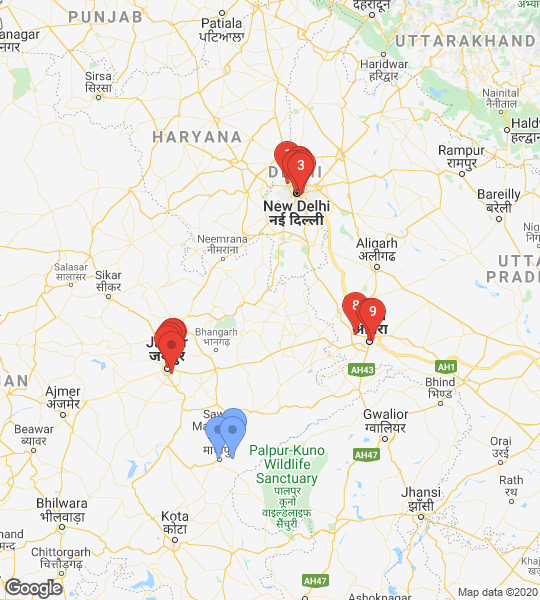
Located in the heart of old Jaipur, the City Palace is a spectacular example of the amalgamation of Rajput and Mughal architecture. It also houses the Diwan-e-Am (hall for public audience with the king), Diwan-e-Khas, Mubarak Mahal and the Maharani’s Palace (queen’s palace).
Good to know:
Commissioned to be built by the founder of Jaipur, Maharaja Jai Singh II, this lavish palace includes the living quarters of the erstwhile royal family, some of whom still reside in a private wing.
What to do:
The Mubarak Mahal houses the Maharaja Sawai Man Singh II Museum, which displays the royal family’s personal belongings like garments with the most exquisite embroideries. The Maharani’s Palace showcases one of the largest collections of weapons in the country. And at Diwan-e-Khas stand two gigantic silver vessels, each 1.6 m tall, which are said to be the largest silver objects in the world.
Day 5 Stop 1: Morning: Ranthambore National Park
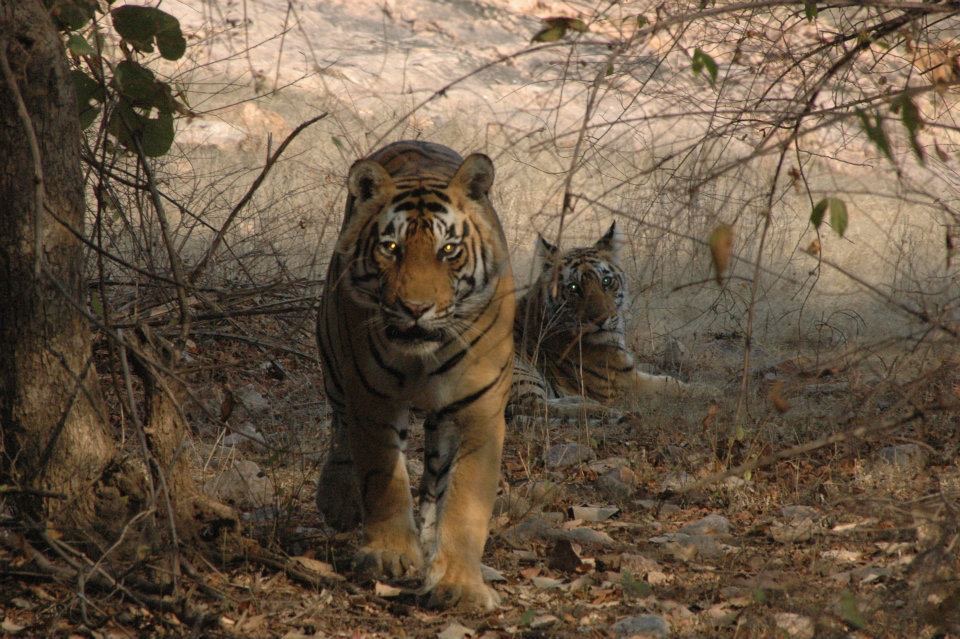
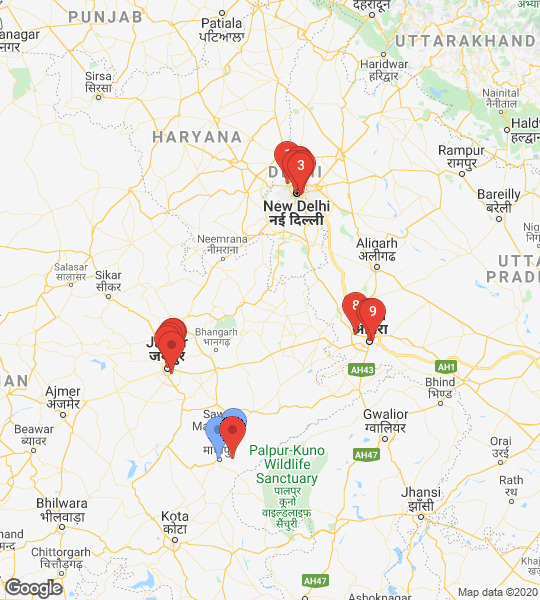
Located 155 km from Jaipur, Ranthambore is one of the best places to sight the tiger in the wild. You can see other wildlife like sloth bear, leopard, jackal, fox, hyena, Indian wolf, chital, sambar deer, blue bull antelope or nilgai, rhesus macaque, langur and an incredible variety of birds, etc. Take a jungle safari in the wee hours of the morning, and like many others like in wait of the majestic striped denizen amidst calls of monkeys and shrieks of birds.
Good to know:
The Bakula region is among the thickly forested areas of the sanctuary and has various waterholes and pools. Thus, an abundance of wildlife can be found here.
What to see:
The 10th century Ranthambore Fort dominates the landscape of this dry-deciduous forest. It was set up in 944 and today is better known as the ideal territory of the famous Ranthambore tigress, Machali.
Day 5 Stop 2: Afternoon: Surwal Lake

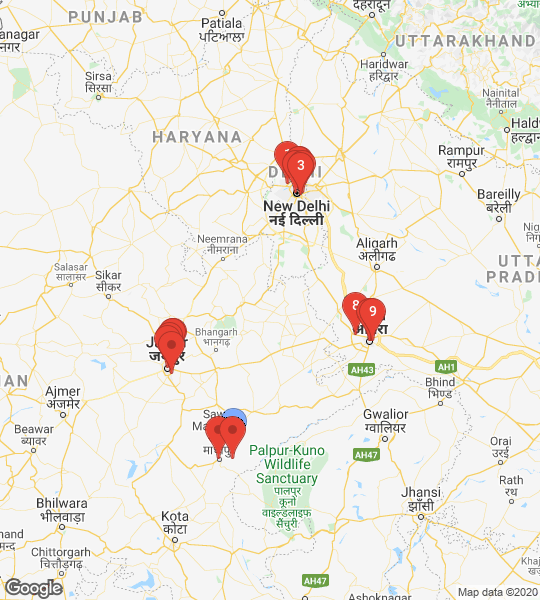
A spot of serenity in the middle of the jungle, Surwal lake becomes a haven for migratory birds during winter. Birdwatchers can have a grand time here, guessing interesting species and clicking amazing pictures.
Travel Tip:
Carry extra batteries for your camera
Day 5 Stop 3: Kachida Valley

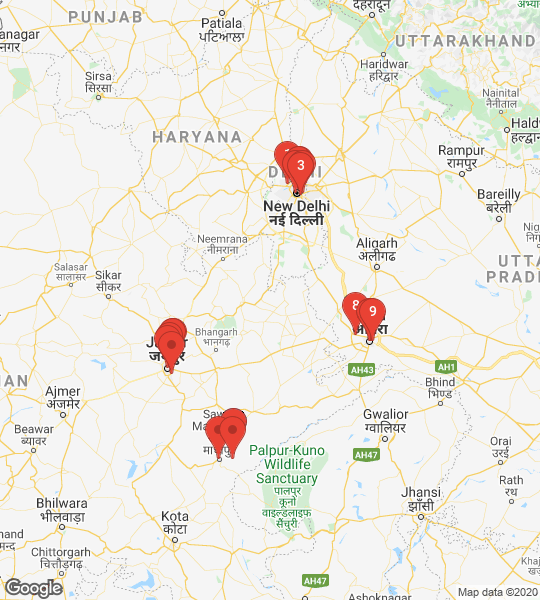
Head to the Kachida Valley, a hideout of bears and panthers. Surrounded by low rugged hills, it makes for a natural delight, where you can get interesting sights of wildlife.
Travel Tip:
Make sure you take your guide along with you.











